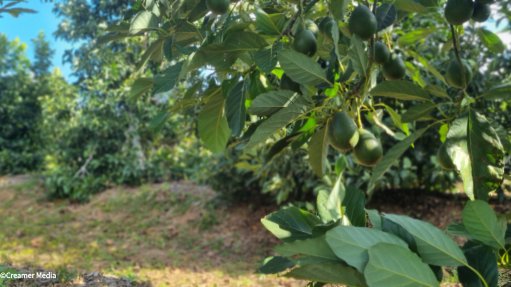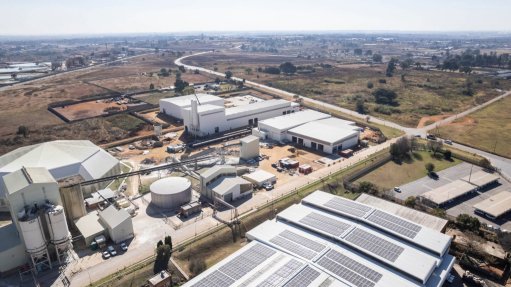Three South Africans shortlisted in Africa Prize for Engineering Innovation competition
A shortlist of 15 African entrepreneurs and their pioneering technologies – aimed at environmental rehabilitation, education and human health and safety – have been selected for the 2023 Africa Prize for Engineering Innovation.
This year’s innovations include a treatment to convert acid mine drainage (AMD) into drinking water, a portable aquaponics unit that uses fish waste to boost production of vegetables, a robotics learning tool for children, a remote healthcare monitoring system and an ecofriendly cooking stove that absorbs black carbon.
Other innovations include energy and environmental solutions, including a power pack that uses recycled laptop batteries to address unreliable power supply, converted motorbikes that run on batteries, an electric cargo bike with a battery-powered fridge to reduce post-harvest loss, a system to help prepare waste for recycling and a mobile machine to create interlocking compressed earth bricks.
Africa Prize judge and AppsTech CEO Rebecca Enonchong explains that climate change is impacting Africa more severely than other continents, with agricultural production, food security and water resources being compromised, compounded by a weak adaptive capacity.
“This year, 11 of our innovations are contributing directly to environmental sustainability,” she points out.
The innovations shortlisted in 2023 tackle challenges central to the United Nation’s (UN’s) Sustainable Development Goals (SDGs), including quality education, clean water and sanitation, sustainable cities and communities, good health and wellbeing, and clean energy.
The 2023 shortlist represents ten African countries, including for the first time Angola and Sierra Leone, and demonstrates the importance of engineering as an enabler of improved quality of life and economic development.
Launched in 2014, the Africa Prize is awarded yearly by the Royal Academy of Engineering to ambitious African innovators creating local and scalable solutions to pan-African and international challenges.
Innovators shortlisted for the Africa Prize will benefit from a package of support including business incubation, mentoring, fundraising and communications.
The package also includes access to the Royal Academy’s global network of high-profile and highly experienced engineers and business experts in the UK and Africa.
In mid-2023, four finalists will be chosen to pitch their innovations and business plans to Africa Prize judges at an event in Accra, Ghana.
The winner will receive £25 000, while three runners up will win £10 000, each. An additional One-to-Watch award of £5 000 will be given to the most promising innovator.
This year’s shortlisted innovators join the Academy’s 134-strong Africa Prize alumni network, which includes innovators who have achieved significant commercial success and social impact across the continent following their participation in the prize.
The 2022 winner Norah Magero won based on her portable solar-powered fridge solution for transporting medicines.
Africa Prize alumni are projected to have an impact on more than three-million people in the next five years, and have already created 3 585 jobs, including 1 766 for women and 211 for persons with disabilities. They have also raised more the $14-million in grants and equity funding, directly contributing to 12 of the UN SDGs.
The 2023 shortlist features several water innovations, including a real-time water quality monitoring and control system, an AMD solution to recycle contaminated water for human consumption, and a water management system to prevent excess borehole pumping and drying out of aquifers.
MAKING THE CUT
The shortlisted innovations and entrepreneurs include an affordable AMD solution by South African Boitumelo Nkatlo, a smart water management system that monitors water levels in boreholes and water tanks by Ghanaian Obed Zar, a robotics learning tool for children by Angolan Cristovão Cacombe and a portable fish farm that uses fish waste as a fertiliser to produce organic vegetables by Cameroonian Flavien Kouatcha Simo.
For electric mobility, Nigerain Chukwuemeka Eze will enter an e-mobility service that converts gas-powered three-wheel motorbikes to run on batteries, while South African Edmund Wessels intends to enter a portable device enabling gynaecologists to diagnose and treat uterine health issues without anaesthetic.
Ghanaian Emmanuel Ofori Devi will enter a healthcare monitoring system that records a patient’s vital signs and transmits them to doctors, while Ethiopian Fikru Gebre Dikumbab will enter a manually-operated portable machine to make interlocking compressed earth bricks using between 90% and 95% soil, and between 5% to 10% of cement.
ProbiGal – a host-specific multistrain probiotic designed to promote gut health and prevent bacterial infections in chickens will be entered into the competition by South African Dr Deon Neveling, while Sierra Leonian Margaret Yainkain Mansaray will enter an efficient non-electric cooking device designed to reduce greenhouse gas emissions and health risks.
Other innovators include Zimbabwean Allen Chafa’s real time water quality monitoring and control system, Nigerain Tolulope Olukokun’s electric cargo bike with a battery-powered fridge to help Nigeria’s smallholder farmers, Tanzanian Gibson Kawago’s power pack made with recycled laptop batteries, Nigerain Cletus Ekpoh’s four-part recycling system to help informal waste collectors and Ugandan Anatoli Kirigwajjo’s local digital network.
Article Enquiry
Email Article
Save Article
Feedback
To advertise email advertising@creamermedia.co.za or click here
Comments
Announcements
What's On
Subscribe to improve your user experience...
Option 1 (equivalent of R125 a month):
Receive a weekly copy of Creamer Media's Engineering News & Mining Weekly magazine
(print copy for those in South Africa and e-magazine for those outside of South Africa)
Receive daily email newsletters
Access to full search results
Access archive of magazine back copies
Access to Projects in Progress
Access to ONE Research Report of your choice in PDF format
Option 2 (equivalent of R375 a month):
All benefits from Option 1
PLUS
Access to Creamer Media's Research Channel Africa for ALL Research Reports, in PDF format, on various industrial and mining sectors
including Electricity; Water; Energy Transition; Hydrogen; Roads, Rail and Ports; Coal; Gold; Platinum; Battery Metals; etc.
Already a subscriber?
Forgotten your password?
Receive weekly copy of Creamer Media's Engineering News & Mining Weekly magazine (print copy for those in South Africa and e-magazine for those outside of South Africa)
➕
Recieve daily email newsletters
➕
Access to full search results
➕
Access archive of magazine back copies
➕
Access to Projects in Progress
➕
Access to ONE Research Report of your choice in PDF format
RESEARCH CHANNEL AFRICA
R4500 (equivalent of R375 a month)
SUBSCRIBEAll benefits from Option 1
➕
Access to Creamer Media's Research Channel Africa for ALL Research Reports on various industrial and mining sectors, in PDF format, including on:
Electricity
➕
Water
➕
Energy Transition
➕
Hydrogen
➕
Roads, Rail and Ports
➕
Coal
➕
Gold
➕
Platinum
➕
Battery Metals
➕
etc.
Receive all benefits from Option 1 or Option 2 delivered to numerous people at your company
➕
Multiple User names and Passwords for simultaneous log-ins
➕
Intranet integration access to all in your organisation


















